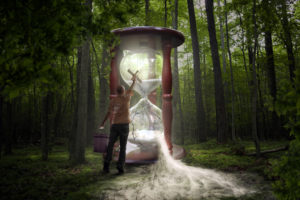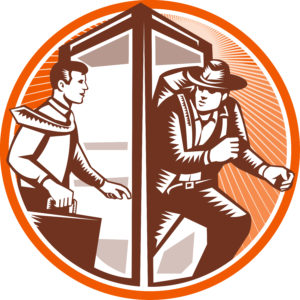Quick links, bringing you great articles on writing from all over the web.
Here are some good pointers from author Duncan M. Hamilton for writers who are thinking of becoming self-published. Head on over to Fantasy Faction for the full post.
~ * ~
10 Tips for Self-Published Authors
 by Duncan M. Hamilton
by Duncan M. Hamilton
In publishing there are outliers who release a book straight to the top of the charts, but they are few and far between. Happily, you don’t need this to happen to be able to make a full time living from writing—the slow build to a solid platform is equally viable, albeit longer in the making. With that in mind, I’ve put together ten pointers that I hope will help anyone considering going down the self-pub route avoid some of the pitfalls and hard lessons waiting along the way.
1. Writers’ Cafe on the KBoards Forum
Every day for me starts with a few minutes there. It has a vast amount of information relating to pretty much everything you could encounter as a writer. It’s up to date, with discussions on new developments in the industry usually starting up within minutes of the announcement being made. There’s also ongoing discussion on what marketing methods are working, and those that aren’t. As always, you’ll need to exercise personal judgement in separating the wheat from the chaff, but this will become easier with a little time spent reading up. There are some very experienced and successful writers hanging out there, and more often than not they are very generous with their advice and in sharing their knowledge.
Read the full post on Fantasy Faction

 I just finished a book, one I won’t name because I don’t want to be mean. The problem is that the book was really good, at least for the first half. You could tell where the writer either had a deadline or just gave up. I hate that.
I just finished a book, one I won’t name because I don’t want to be mean. The problem is that the book was really good, at least for the first half. You could tell where the writer either had a deadline or just gave up. I hate that. One of the things I love to do is go shopping at specialty markets, and Los Angeles has so many great places. The Mexican grocery store down the street carries real bologna, the kind with the red strip around it. My great aunt in Newfoundland used to fry pieces up for breakfast, so being able to do the same for my kids shares wonderful memories. They also have a fantastic deli and bakery. Today I am going to a Chinese market and can’t wait to see what I find there.
One of the things I love to do is go shopping at specialty markets, and Los Angeles has so many great places. The Mexican grocery store down the street carries real bologna, the kind with the red strip around it. My great aunt in Newfoundland used to fry pieces up for breakfast, so being able to do the same for my kids shares wonderful memories. They also have a fantastic deli and bakery. Today I am going to a Chinese market and can’t wait to see what I find there. When I was 31, I retired from a “good” job as an audio engineer at ABC in San Francisco to write a novel. (“Good” for an engineer, hell for a writer.) I was the first engineer across the US to take ABC’s seemingly generous offer: one year’s salary to get lost. How could any writer turn that down? How could it take longer than a year to write a novel?
When I was 31, I retired from a “good” job as an audio engineer at ABC in San Francisco to write a novel. (“Good” for an engineer, hell for a writer.) I was the first engineer across the US to take ABC’s seemingly generous offer: one year’s salary to get lost. How could any writer turn that down? How could it take longer than a year to write a novel? Think about some of your favorite series – either books or TV shows. Why do you keep going back for more?
Think about some of your favorite series – either books or TV shows. Why do you keep going back for more? 

 by
by 
 How do you know when to start a new scene in your story? And how do you know when to end it? What’s the reasoning you use?
How do you know when to start a new scene in your story? And how do you know when to end it? What’s the reasoning you use? As a writer with no formal qualifications, i.e. no tertiary degree in writing, I have looked for other ways to learn about the craft of writing.
As a writer with no formal qualifications, i.e. no tertiary degree in writing, I have looked for other ways to learn about the craft of writing. My treadmill movie the other day was Fast Five.
My treadmill movie the other day was Fast Five. Unclear thinking is an enemy of the writer, and it’s most often about being lazy and not fully imagining your story. Write with clarity of purpose, and your writing comes alive.
Unclear thinking is an enemy of the writer, and it’s most often about being lazy and not fully imagining your story. Write with clarity of purpose, and your writing comes alive. Today’s guest post is by
Today’s guest post is by